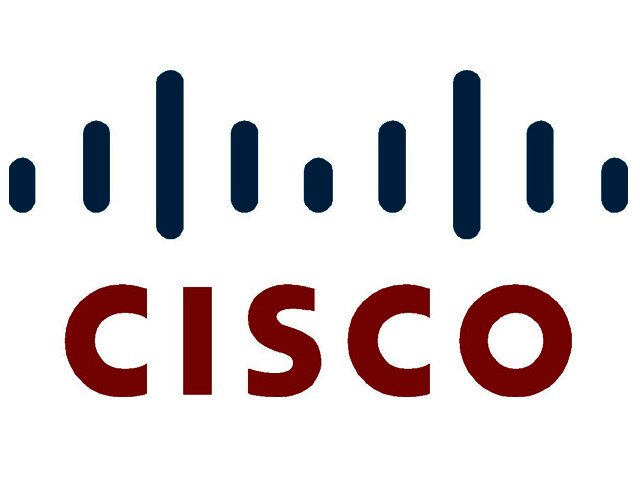PREVIOUS ARTICLENEXT ARTICLE
NEWS

Cisco Global Cloud Index reveals data trends till 2016
By Ryan Noik 1 November 2012 | Categories: news
According to Cisco’s second annual Cisco Global Cloud Index (2011 – 2016) report, global data centre traffic will grow four-fold and reach a total of 6.6 zettabytes annually by 2016.
To put that in perspective, while a terabyte is 1 000 GB, and a petabyte is 1 000 terabytes, neither of these are the highest values to which storage can reach.
To put that in perspective, while a terabyte is 1 000 GB, and a petabyte is 1 000 terabytes, neither of these are the highest values to which storage can reach.
Instead, an exabyte refers to 1 000 petabytes, and at the top of the storage mountain sits the mighty zettabyte, which is a huge 1 000 exabytes. Therefore, 6.6 zettabytes is an incomprehensibly large number.
The company also predicted that the Middle East and Africa will have the highest cloud traffic growth rate at 79% Compound Annual Growth Rate (CAGR). It is followed by Latin America (66% CAGR) and Central and Eastern Europe (55% CAGR).
“As cloud traffic continues to proliferate in a new world of many clouds, the Cisco Global Cloud Index provides all cloud computing stakeholders with a valuable barometer to make strategic, long-term planning decisions,” explained Anver Vanker, consulting systems engineer for Cisco South Africa.
Cloudy, with a chance of growth
According to the report, global cloud traffic, which Cisco bills as the fastest growing component of data centre traffic, will grow six-fold, from 683 exabytes of annual traffic in 2011 to 4.3 zettabytes by 2016. The company explained that the vast majority of the data centre traffic is not caused by end users, but rather is generated by data centres and cloud-computing workloads used in activities that are virtually invisible to individuals.
In its report, Cisco also forecast that approximately 76% of data centre traffic will stay within the data centre and will be largely generated by storage, production and development data up until 2016. It added that an additional 7% of data centre traffic will be generated between data centres primarily driven by data replication and software/system updates.
The remaining 17% of data centre traffic will be fueled by end users accessing clouds for web surfing, emailing and video streaming.
And now, let’s look at South Africa….
The company also had some good news for South Africa; the study ranked the country as one of the most improved countries in mobile network performance, improving by 50% from 2011 to 2012.
The company also predicted that the Middle East and Africa will have the highest cloud traffic growth rate at 79% Compound Annual Growth Rate (CAGR). It is followed by Latin America (66% CAGR) and Central and Eastern Europe (55% CAGR).
“As cloud traffic continues to proliferate in a new world of many clouds, the Cisco Global Cloud Index provides all cloud computing stakeholders with a valuable barometer to make strategic, long-term planning decisions,” explained Anver Vanker, consulting systems engineer for Cisco South Africa.
Cloudy, with a chance of growth
According to the report, global cloud traffic, which Cisco bills as the fastest growing component of data centre traffic, will grow six-fold, from 683 exabytes of annual traffic in 2011 to 4.3 zettabytes by 2016. The company explained that the vast majority of the data centre traffic is not caused by end users, but rather is generated by data centres and cloud-computing workloads used in activities that are virtually invisible to individuals.
In its report, Cisco also forecast that approximately 76% of data centre traffic will stay within the data centre and will be largely generated by storage, production and development data up until 2016. It added that an additional 7% of data centre traffic will be generated between data centres primarily driven by data replication and software/system updates.
The remaining 17% of data centre traffic will be fueled by end users accessing clouds for web surfing, emailing and video streaming.
And now, let’s look at South Africa….
The company also had some good news for South Africa; the study ranked the country as one of the most improved countries in mobile network performance, improving by 50% from 2011 to 2012.
More specifically, the study found that overall consumer and business fixed network cloud performance in South Africa showed download speeds of 2.045 kbps, and upload speeds of 764 kbps, while overall consumer and business mobile network cloud performance locally indicated download speeds of 2.629 kbps, and upload speeds of 1.253 kbps.
Vanker explained that this year’s forecast confirms that strong growth in data centre usage and cloud traffic are driven by our growing desire to access personal and business content anywhere, on any device.
“It is clear that the next-generation internet in South Africa will be an essential component to enabling much greater data centre virtualisation and a new world of interconnected clouds,” he concluded.
To the point
This perhaps, is one of the most exciting points made by Cisco, especially when one takes into consideration that rather than being nebulous and distant, cloud technology has actually become a part of everyday life already.
This was most recently well illustrated by MWEB’s general manager, Andre Joubert, at the cloud and virtualization summit. In short, between Cisco and the speakers of that summit, the message is clear – cloud technology is here to stay and is well deserving of the ample attention it is receiving.
USER COMMENTS
Most Read Articles
Read

Magazine Online
TechSmart.co.za is South Africa's leading magazine for tech product reviews, tech news, videos, tech specs and gadgets.
Start reading now >
Download latest issue
Have Your Say
What new tech or developments are you most anticipating this year?
New smartphone announcements (45 votes)
Technological breakthroughs (29 votes)
Launch of new consoles, or notebooks (14 votes)
Innovative Artificial Intelligence solutions (29 votes)
Biotechnology or medical advancements (24 votes)
Better business applications (160 votes)



